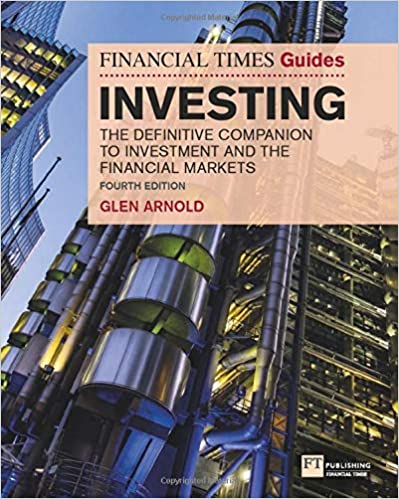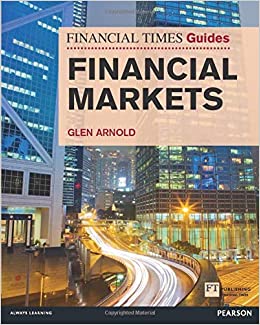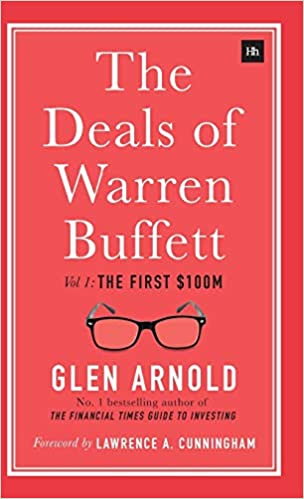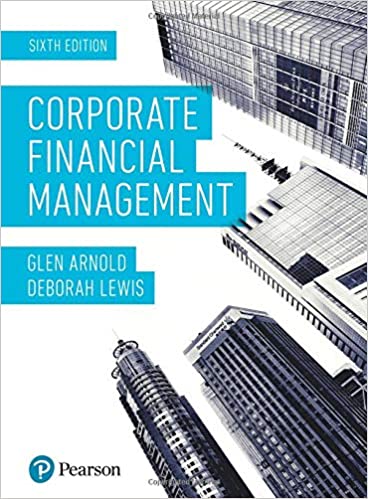If you’ve heard the name Glen Arnold, it might be because his investing title Investing: The definitive companion to investment and the financial markets is currently ranked as my #1 best investing book.
In fact, I awarded that title with the Financial-Expert.co.uk Gold Award for 2020.
Glen was kind enough to respond to an interview request, which I’ve published below, together with a complete list of his works.
I have begun this interview series to help provide some insight into the investing minds who pen investing books in the UK and abroad.

Interview with author Glen Arnold
Please could you tell us a little about your professional background and why you felt inspired to write Investing: The definitive companion to investment and the financial markets.
Glen: I was an academic for many years, starting off in Corporate Finance but morphing into a Professor of Investing supervising PhD students looking into the question “What works in investing?”.
Around 2002 I saw there was a gap in the market for a beginners guide to investing so I suggested writing the Financial Times Guide to Investing to Pearson, which owned the Financial Times at the time (they had published two other books of mine).
The introductory guide had to take a reader who had no prior knowledge of investing and financial markets to a good comprehensive understanding, and do so in a painless way.
Pearson welcomed the idea with open arms, and we’re now into the fourth edition. Eight years ago I left a tenured professorship to test myself in the real world of investing. That experiment has gone so well I’ll be morphing into a fund manager soon (properly FCA supervised and everything – real grown-up investing!).
This title is a guide for beginners & generalists. What drove you to write such a comprehensive guide compared to a more specialist title?
Glen: There didn’t seem to be anything on the market which was both kind to the beginner but also contained all the essential bits and pieces you are going to need to know. Existing books were either too simple or were for people who had been in the markets for decades, or they were the worst kind – how to get rich very quickly! I figured people need an impartial guide, one that empowers the reader to act, to take actual investment decisions confidently.
In the course of researching and writing your books – did you come across anything that surprised you?
Glen: My academic work and teaching in the City continuously brought up surprising findings and behaviour of others, especially in the realm of what does not work and yet is believed to be effective by thousands.
Investment is more about the qualitative (e.g. psychology, market strength of a product in the minds of consumers, likely actions of managers, trustworthiness of corporate directors) than it is about the quantitative – it’s odd how few in fund management understand how to de-emphasise the quantitative and place greater weight on the qualitative. And how little their perspective is shaped by a knowledge of stock market history.
For budding financial writers, what is the one piece of advice would you give to those writing to educate beginners about investments?
Glen: Think from the point of view of the beginner within the field. Do not assume a good knowledge of maths or accounting, for example. Everything needs to be explained near the beginning of the book, without patronising or boring the reader. More sophisticated concepts can come later. Do not try appear too clever – e.g. fancy maths, or fancy words.
And finally, I like to ask all authors; when saving and investing your own money, what is your own preferred investing style?
For eight years I’ve been running a personal fund on deep value investment principles. I’ve now been asked to do the same on a much larger scale investing other people’s money in a UK focused Open-ended Investment Company, OEIC.
With deep value investing I concentrate on analysing the intrinsic value of a company. This requires weeks of work: analysing the accounts, meeting the directors, considering the competitive advantages and integrity of the managerial team and so on.
I then compare estimated intrinsic value with what the market is asking for the company (or share in the company). I compare price with true value. If there is a margin of safety between the two I’m likely to buy. I invest in few companies because there are few real bargains to be found. Therefore I run a concentrated portfolio.
Books written by Glen Arnold
Glen is a prolific writer who has penned over 10 books about investing, corporate financial management, and the financial markets.
Click on the links of titles below to find out more. As an Amazon Associate, I earn a small commission from qualifying purchases which helps to support this site.

- The Financial Times Guide to Investing
- The Financial Times Guide to Value Investing
- The Financial Times Handbook of Corporate Finance

- The Financial Times Guide to Financial Markets
- The Financial Times Guide to Banking
- The Financial Times Guide to Bond and Money Markets.

- The Deals of Warren Buffett: Vol 1: The first $100m
- The Deals of Warren Buffett, Vol 2: The making of a billionaire
- The Great Investors

- Get Started in Shares
- Corporate Financial Management
- Modern Financial Markets and Institutions
- Essentials of Corporate Financial Management
Genres of books written by Glen Arnold
Glen writes titles in the following categories:
- Business books
- Corporate financial management books